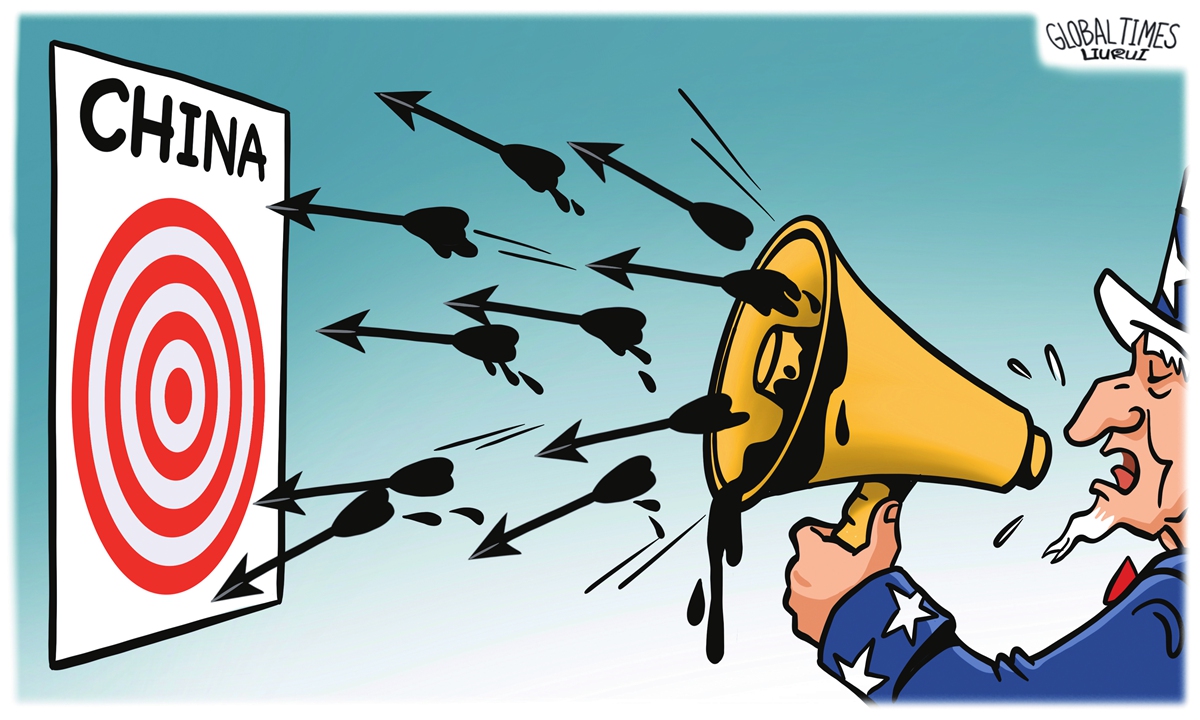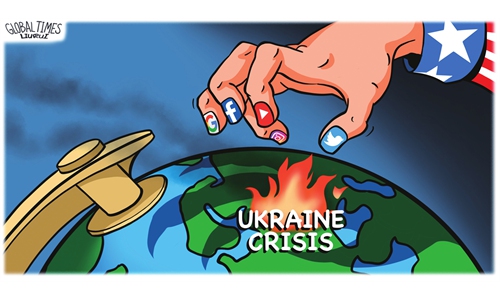
The hopeless fault-finder Illustration: Liu Rui/GT
After acquiring Twitter, Elon Musk proclaimed in a tweet, "The bird is freed." It may have cheered up some users. But the glee is a bubble of self-delusion. Beyond the enormous flow of online comments and the watchful eyes of platforms such as Twitter and Meta, the US authorities have never blinked.
At first, it was about addressing messages said to be harmful to the integrity of US elections. In the lead-up to the 2020 elections, the heads of tech giants were reportedly meeting with the FBI, Department of Homeland Security (DHS), and representatives from other government agencies every month to discuss how to handle misinformation during elections. The critical work was not completely outsourced though-FBI agents have been revealed to work undercover online to penetrate social networking chatrooms, online forums, and blogs to "detect, enter, dismantle, and disrupt existing and emerging terrorist organizations."
It is a slippery slope. From the subject of elections, the DHS soon took its interest to other areas - such as origins of the COVID-19 pandemic,vaccine efficacy, racial justice, the US withdrawal from Afghanistan, and the nature of US support for Ukraine-were all identified as targets in its internet-cleansing campaign, as is shown in recently leaked documents.
And all seem to point to US governance failures of one sort or another: the world's wealthiest nation continues to lead by its number of confirmed COVID cases and fatalities; African Americans have to live with disproportionately high police brutality; millions of Afghans have seen their lives destroyed by the US' 20-year war in Afghanistan and many American sons and daughters in uniform made the ultimate sacrifice for God-knows-what; meanwhile, ordinary Americans are losing incomes, jobs, health insurance and a sense of control over their lives, just as their elected officials are squandering billions of dollars arming foreign soldiers in a war far away in Europe.
Is it all a hush-up?
Yes and No. While certain information is suppressed, in some cases, information -or disinformation for that matter - is magnified. The Stanford Internet Observatory (SIO) and Graphika have found that there are many social media accounts consistently advancing "narratives promoting the interests of the United States and its allies while opposing countries including Russia, China, and Iran" and they "showed clear signs of automated or highly coordinated posting activity", created fake personas, and misled the public discourse.
The US Congress even proposed $500 million to be spent on producing China-bashing journalism for overseas audiences.
National security is often cited for the interference. The question is exactly how censorship of free speech and double standards on information treatment helps US national security.
But there is no need to be fussy. Policing the internet is a thing now for US authorities. In April, the Biden administration set up a Disinformation Governance Board under the DHS, although it had to be aborted four months later due to a lack of transparency of the mandates and administrative redundancy. As luck would have it, the US government has a legion of coders in the private sector to do its bidding: Facebook was reported to have built a special portal for government officials to request user content be throttled or suppressed. And there are other platforms adjusting their algorithms to support the government's efforts to remove "disinformation."
America once proudly declared, in the words of former Secretary of State Hillary Clinton, that "information networks are helping people discover new facts and making governments more accountable." Now, its political leaders are gripped by such fear that they deem it dangerous for their people to express themselves freely, or for truth to be spoken out either about the US itself or other countries. The American people need answers for their freedoms. But the most fundamental question one must ask is whether American democracy is still alive and kicking.
The author is a commentator on international affairs, writing regularly for Xinhua News Agency, CGTN, Global Times, China Daily etc. He can be reached at xinping604@gmail.com


